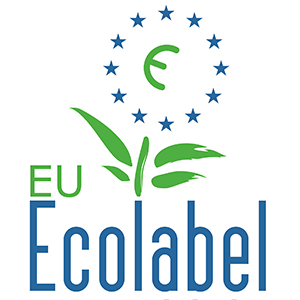What is Ecolabelling?
The EU Ecolabel is a voluntary labelling scheme which helps consumers and business purchasers identify products that have reduced environmental impact. Coordinated by the European Commission but certified and assessed by independent scientists, it is recognised and trusted throughout Europe.
For businesses, the Ecolabel can bring added value to their finished products because it indicates corporate social responsibility, may increase business reputation and hence can impact sales. Ecolabelled products may also be given preference under EU Green Public Procurement initiatives.
Companies can apply to have the Ecolabel on a product providing it can meet the scheme’s criteria, which are developed and revised by a group of scientific experts and key stakeholders.
How does Ecolabelling impact the surfactant industry?
Surfactants are important ingredients for a wide range of consumer and industrial detergents and producers of the finished cleaning products increasingly want them to have an Ecolabel.
The focus of EU Ecolabel criteria is on the stages of a product’s lifecycle where it can have the highest environmental impact. For example, as many detergents are eventually flushed into water systems, the detergent EU Ecolabel criteria require all surfactants used in a formulation to be readily aerobically biodegradable.
Other Ecolabel requirements differ from one type of product to another. To address this six different detergent and cleaning product groups have been created under the Ecolabel scheme, each with their own set of criteria. The overarching aim in each case, however, is to promote detergents that represent the best 20% of products in terms of environmental performance.
The criteria are revised, on average every four years, to reflect technical innovation such as evolution of materials or production processes, as well as factors like emission reduction and changes in the market.
What is CESIO’s role in Ecolabelling?
As the main stakeholder representing the interests of the EU surfactant industry, CESIO’s aim is to ensure that environmental assessment of surfactants under Ecolabelling criteria is based on scientific data and/or expert opinion.
The EU Ecolabel criteria are developed in a transparent multi-stakeholder process. CESIO plays an active role in consultations with the Commission and participates as an expert source in technical working group meetings along with scientists, non-governmental organisations and other industry experts from across a wide range of sectors.
Every set of criteria undergoes several rounds of discussion between these stakeholders to ensure the development of rigorous but fit-for-use environmental criteria, before they are finally adopted by the European Commission.
Recent revisions have been aimed at harmonization of criteria across all six product groups and incorporating new criteria for the sustainable sourcing of palm (kernel) oil, which affects surfactants made from these natural raw materials.

